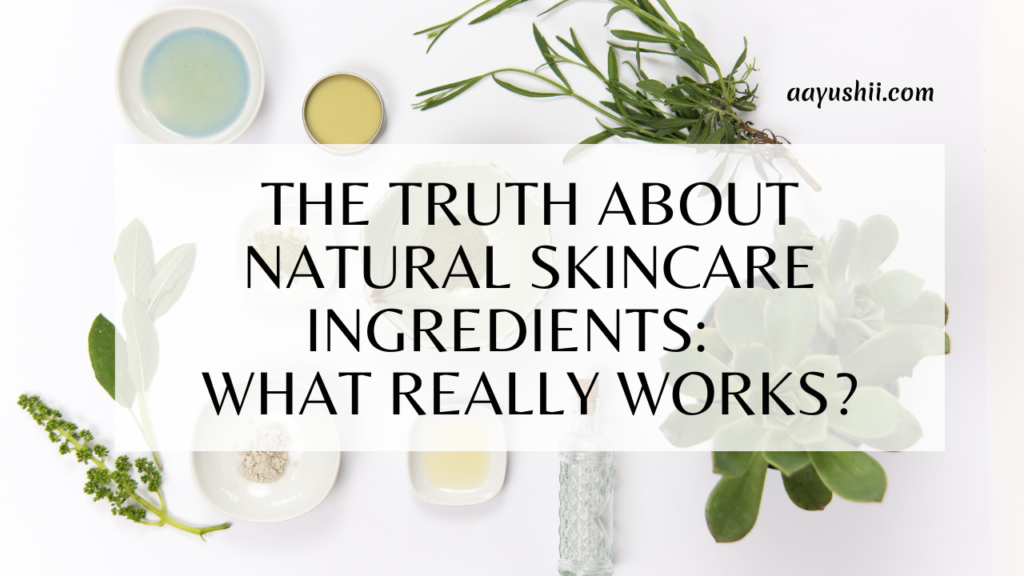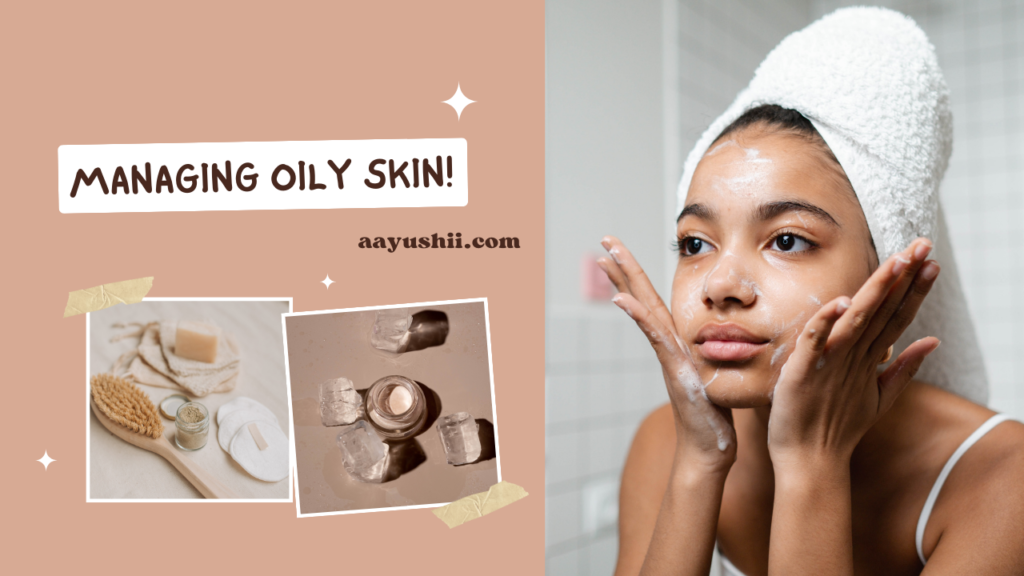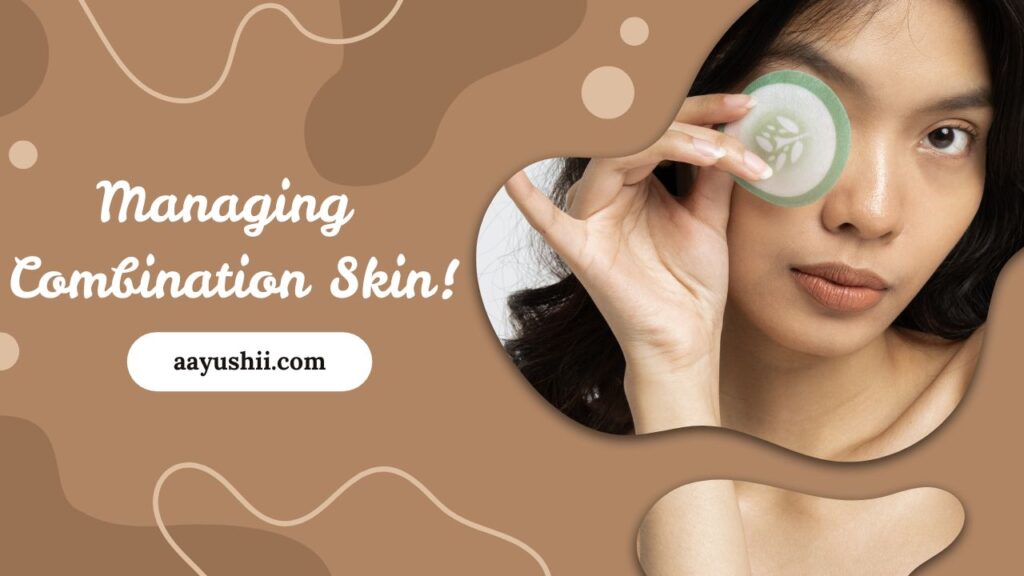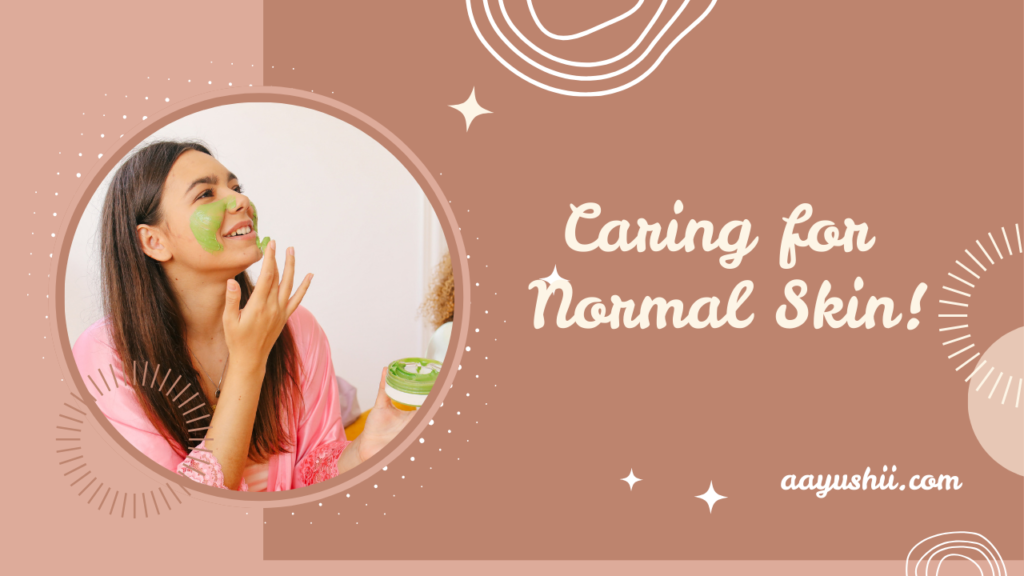In recent years, the allure of natural skincare has captured the hearts and wallets of millions. The idea of nourishing our skin with natural ingredients—plants, minerals, and other organic sources—resonates deeply, especially in an era marked by concerns about synthetic chemicals and their potential side effects. However, amidst the sea of products promising youthful, glowing skin through natural formulations, it’s essential to separate fact from fiction. Which natural ingredients actually work, and which are just marketing fluff?
Welcome to Skincare with aayushii.com, your trusted source for science-backed healthcare insights. In this article, we delve into the science of natural skincare ingredients, unveiling what really delivers results for your skin.
Understanding Natural Skincare: What Does “Natural” Mean?
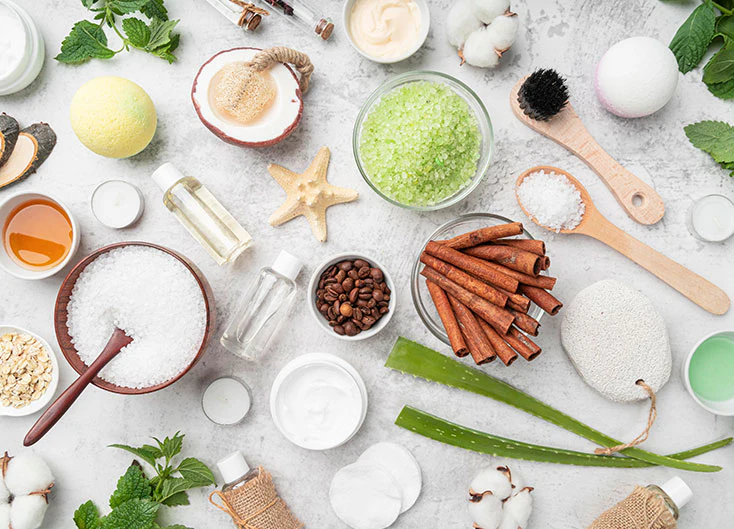
The term “natural” in skincare can be misleading. While it often implies ingredients derived from plants or minerals, there are no universally accepted regulations for its use in cosmetics. A product labeled as “natural” may still contain synthetic additives or heavily processed natural derivatives.
To truly embrace natural skincare, focus on products with minimally processed ingredients, free from harmful chemicals like parabens, sulfates, and synthetic fragrances. Additionally, understanding which natural components have proven efficacy can empower you to make informed choices.
Star Performers: Natural Ingredients That Work

Science validates the effectiveness of several natural ingredients for skincare. Let’s explore these powerhouses:
1. Aloe Vera: The Soothing Superstar
Benefits: Aloe vera is a time-tested remedy for soothing skin irritations, burns, and inflammation. Rich in vitamins (A, C, E) and antioxidants, it hydrates and promotes healing.
Scientific Evidence: Studies confirm aloe vera’s ability to improve skin hydration and accelerate wound healing. It’s especially beneficial for people with sensitive or acne-prone skin.
How to Use: Apply pure aloe vera gel directly to the skin or look for products listing aloe vera as the main ingredient.
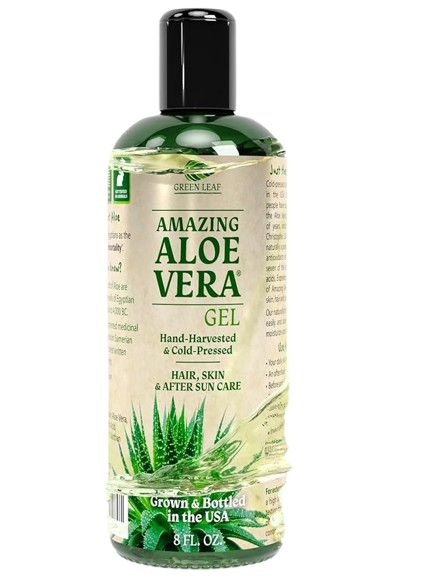
2. Green Tea: Antioxidant Shield
Benefits: Green tea is packed with polyphenols, which combat free radicals and reduce inflammation. It’s effective in addressing signs of aging and soothing irritated skin.
Scientific Evidence: Research highlights green tea’s ability to reduce UV damage and improve skin elasticity. Its antimicrobial properties also help manage acne.
How to Use: Look for moisturizers or serums containing green tea extract, or apply brewed green tea as a toner or green tea powder as a face pack.
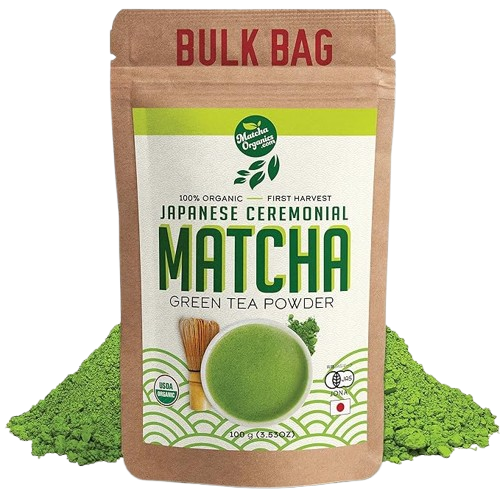
3. Honey: Nature’s Moisturizer
Benefits: Honey is a natural humectant, drawing moisture into the skin. It also boasts antibacterial and healing properties.
Scientific Evidence: Studies show that honey can help in managing acne, moisturizing dry skin, and accelerating wound healing.
How to Use: Opt for raw or Manuka honey as a mask, or choose products containing honey for a hydration boost.
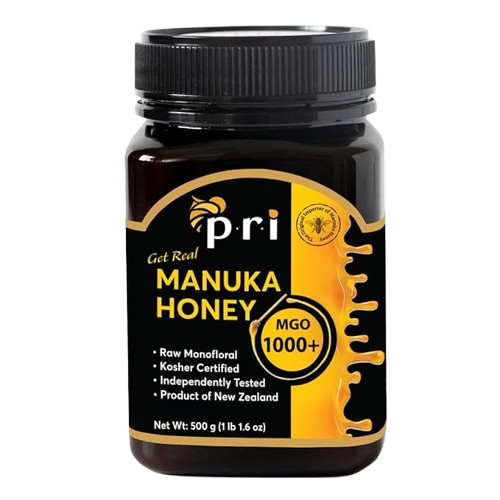
4. Tea Tree Oil: Blemish Buster
Benefits: Known for its antibacterial and anti-inflammatory properties, tea tree oil is a go-to remedy for acne and other skin infections.
Scientific Evidence: Clinical trials demonstrate its effectiveness in reducing acne severity, comparable to benzoyl peroxide but with fewer side effects.
How to Use: Dilute tea tree oil with a carrier oil before applying it to blemishes, or select products formulated with tea tree oil.
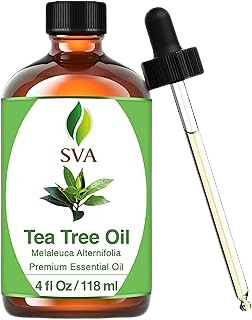
5. Turmeric: Glow-Enhancing Hero
Benefits: Curcumin, the active compound in turmeric, is a potent anti-inflammatory and antioxidant. It brightens skin and reduces pigmentation.
Scientific Evidence: Studies support turmeric’s role in improving skin tone, treating acne scars, and reducing inflammation.
How to Use: Create a mask with turmeric and yogurt, or find serums containing turmeric extract.
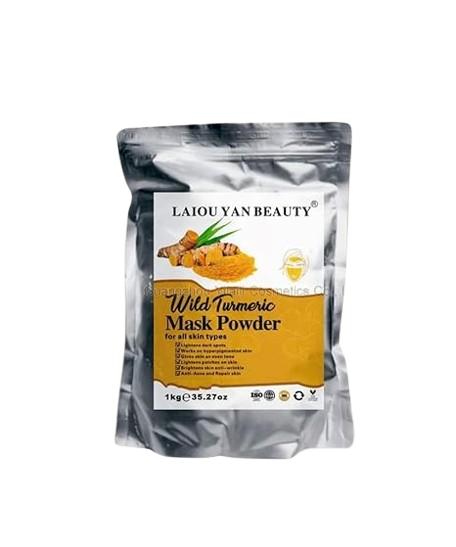
6. Rosehip Oil: The Anti-Aging Elixir
Benefits: Rich in essential fatty acids and vitamins A and C, rosehip oil boosts collagen production and reduces fine lines.
Scientific Evidence: Research confirms rosehip oil’s ability to improve skin elasticity and fade scars and hyperpigmentation.
How to Use: Massage a few drops onto your skin before bedtime or mix it into your moisturizer.
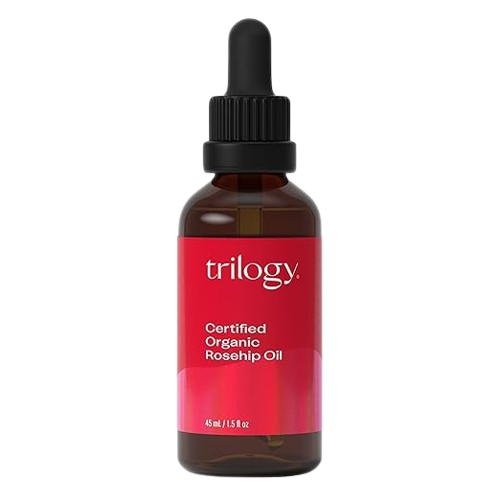
7. Shea Butter: Ultimate Hydration
Benefits: Shea butter is a natural emollient, ideal for softening dry and cracked skin.
Scientific Evidence: Studies show that shea butter helps restore the skin barrier and reduces inflammation.
How to Use: Use pure shea butter on dry areas or select creams enriched with it for deep hydration.
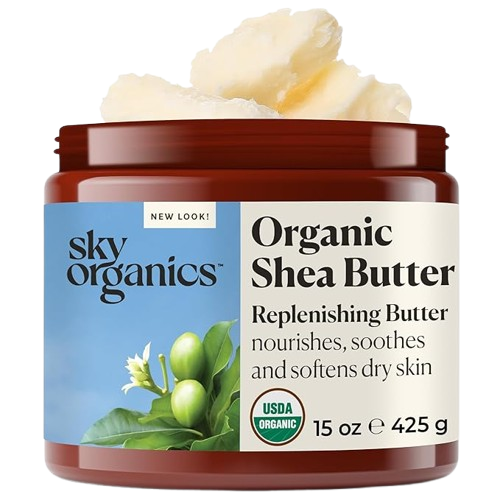
The Pitfalls of Natural Skincare

While natural skincare offers numerous benefits, it’s not without challenges. Here are some potential pitfalls to consider:
1. Allergic Reactions
Natural does not always mean safer. Ingredients like essential oils, nut-based oils (e.g., almond or walnut oil), and floral extracts such as lavender or chamomile are common culprits for allergic reactions. These substances contain potent active compounds that may irritate sensitive skin or trigger allergic responses. Symptoms can range from mild redness and itching to more severe reactions like hives or swelling. To mitigate risks, always perform a patch test on a small area of skin before using a new product extensively..
2. Stability and Shelf Life
Natural skincare products typically forego synthetic preservatives, relying instead on natural alternatives like vitamin E or rosemary extract. While these options are less harsh, they are often less effective at preserving products over time. This means natural products are more susceptible to spoilage, microbial growth, or losing potency. Factors like exposure to light, heat, and air can further degrade them. Proper storage—such as keeping products in a cool, dark place and using them within their recommended timeframe—is essential to maintain their safety and effectiveness.
3. Misinformation and Hype
The natural skincare industry is rife with exaggerated claims and misunderstandings about ingredients. For instance, coconut oil is widely touted for its moisturizing properties, and while it works well for dry skin, it may not suit everyone. For those prone to acne or oily skin, its comedogenic nature (pore-clogging tendency) can exacerbate breakouts. Similarly, not all essential oils are suitable for direct application on the skin; some, like tea tree oil, require dilution to avoid irritation. Consumers should research the benefits and potential drawbacks of natural ingredients rather than relying on marketing buzzwords.
4. Lack of Regulation
The term “natural” lacks a universally agreed-upon definition in the skincare industry and is often used loosely or misleadingly. A product labeled “natural” may still contain synthetic additives, fragrances, or other chemicals. Without stringent regulations, manufacturers can market products with minimal oversight regarding ingredient sourcing or safety claims. This makes it crucial for consumers to be vigilant, reading ingredient lists carefully and prioritizing transparency from brands. Look for certifications, such as USDA Organic or Ecocert, which indicate higher standards for natural formulations.
By being aware of these pitfalls, you can make more informed decisions when incorporating natural skincare products into your routine.
The Role of DIY Skincare
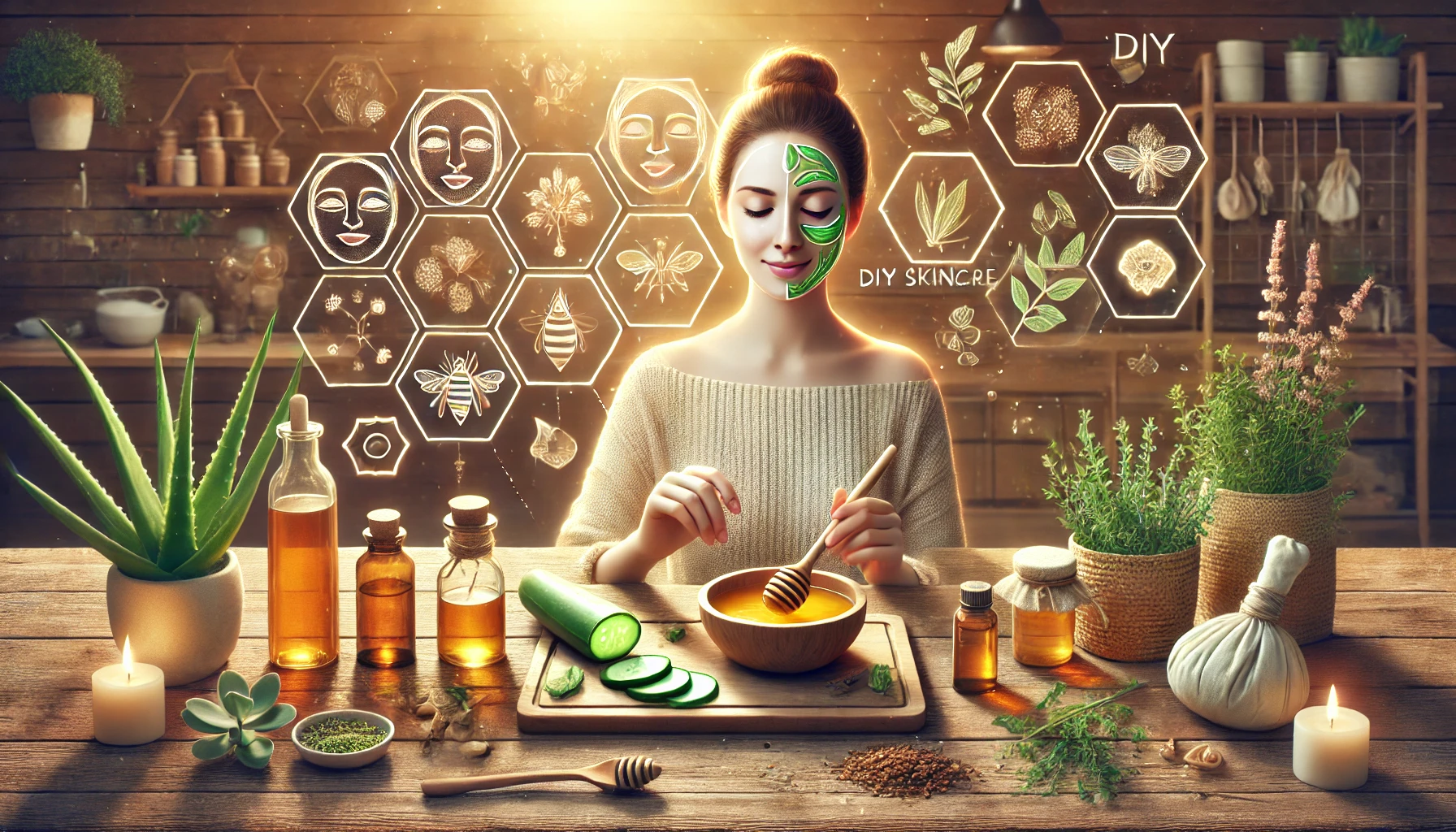
Homemade skincare recipes have gained popularity, but they come with pros and cons:
The Pros of DIY Skincare
- Cost-Effective and Customizable
DIY skincare is an affordable alternative to store-bought products. With simple, readily available ingredients such as honey, oatmeal, or aloe vera, you can create effective treatments tailored to your specific needs. For example, you can add ingredients to target dryness, acne, or dullness based on your preferences and skin type. This makes DIY skincare an attractive option for those who want a personalized approach without spending on premium brands. - No Hidden Additives or Synthetic Chemicals
Homemade formulations allow complete control over what goes into your skincare products. Many commercial options contain synthetic fragrances, parabens, or other chemicals that can irritate sensitive skin. By making your own products, you can avoid unwanted additives and focus on natural, wholesome ingredients, providing peace of mind about what you’re applying to your skin.
The Cons of DIY Skincare
- Risk of Contamination
Without the preservatives found in commercial products, DIY skincare is more prone to bacterial and fungal contamination. Ingredients like water, fresh fruits, and plant extracts can serve as breeding grounds for microbes. Contaminated products can cause infections, irritation, or other skin issues. Maintaining cleanliness during preparation and storage and using fresh ingredients are critical to minimizing these risks. - Limited Shelf Life
Most DIY products have a very short shelf life, often lasting only a few days to a week. Without synthetic preservatives, the natural ingredients break down quickly, losing efficacy and potentially becoming harmful. This means DIY formulations require frequent preparation, which can be inconvenient for those with busy schedules. Proper refrigeration can extend the shelf life slightly, but it’s no substitute for the longevity of store-bought alternatives. - Potential for Improper Formulations
Homemade recipes often lack scientific backing and proper measurement guidelines. For example, overly acidic ingredients like lemon juice can disrupt the skin’s natural pH balance, leading to irritation, dryness, or even chemical burns. Abrasive scrubs made with coarse sugar or salt can cause microtears in the skin, leading to long-term damage. Additionally, combining ingredients without understanding their interactions can result in less effective or harmful products. Consulting reliable sources and exercising caution is essential.
Balancing DIY Skincare
While DIY skincare can be a fun, creative, and natural way to care for your skin, it’s important to proceed with caution. Research recipes thoroughly, prioritize hygiene during preparation, and always patch-test new formulations to ensure safety and compatibility with your skin. In some cases, it may be wiser to supplement DIY efforts with dermatologist-recommended products for optimal skin health.
Combining Nature and Science
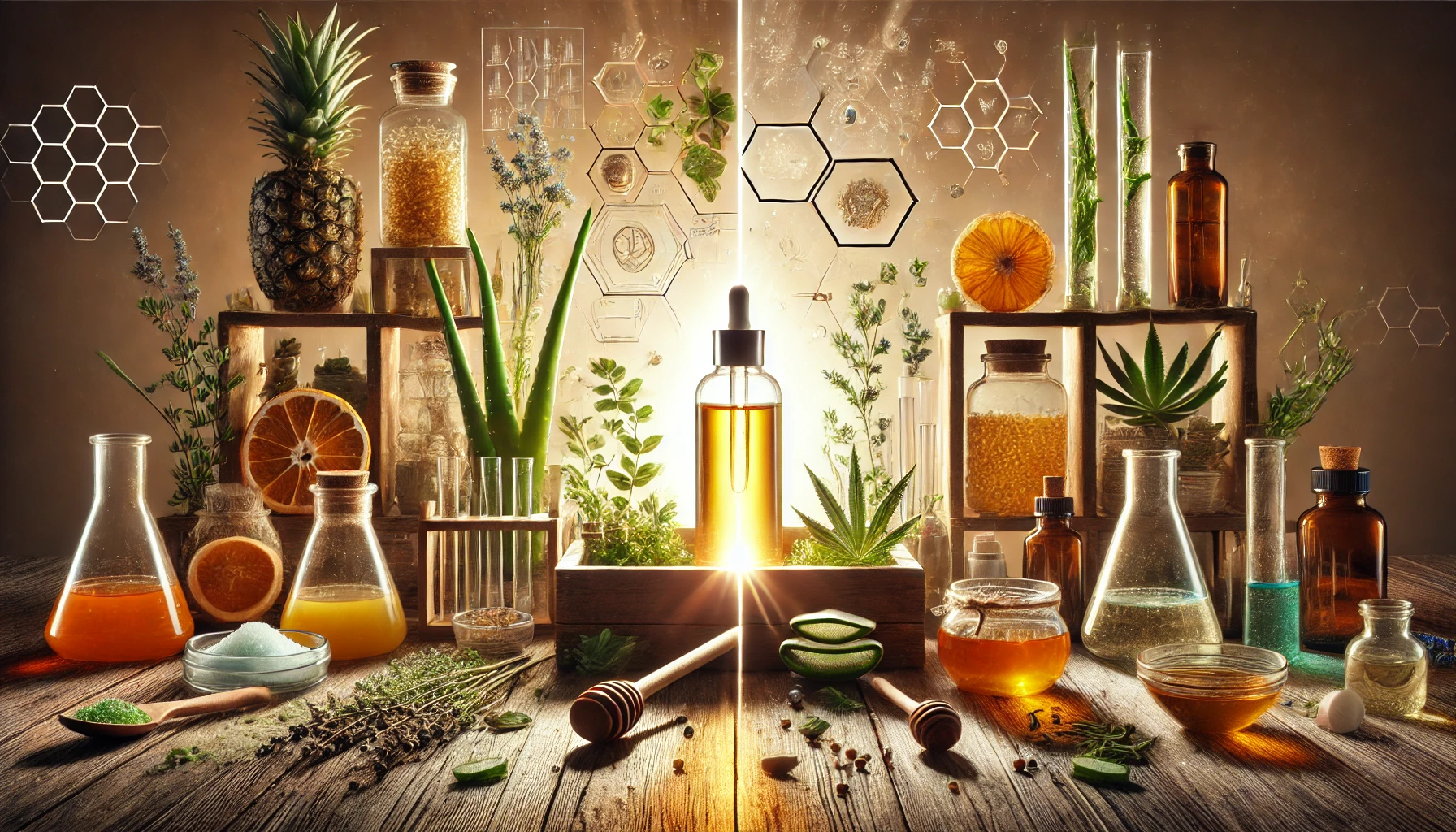
Combining nature and science in skincare allows you to leverage the strengths of both worlds for optimal results. Scientific advancements provide highly effective active ingredients with proven benefits, while natural components often bring gentle, holistic support, ensuring balance and skin compatibility. Here’s how the combinations you mentioned work in greater detail:
- Hyaluronic Acid + Aloe Vera:
- Hyaluronic acid is a humectant that draws water into the skin, providing intense hydration and plumping the skin to reduce the appearance of fine lines. Aloe vera complements this by calming and soothing the skin, reducing redness and irritation, which makes this duo ideal for all skin types, especially sensitive or dehydrated skin.
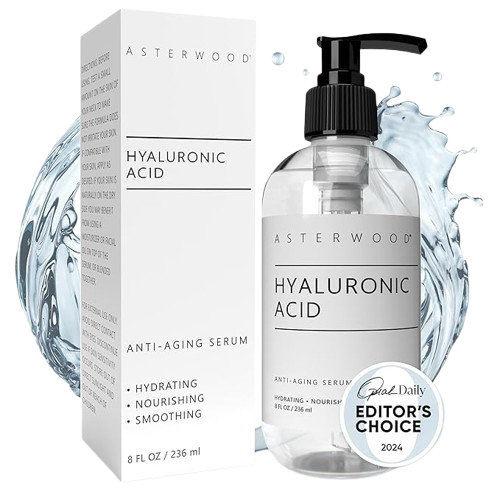
- Vitamin C + Rosehip Oil:
- Vitamin C is a powerful antioxidant that brightens the skin, reduces hyperpigmentation, and stimulates collagen production. Rosehip oil, rich in essential fatty acids and natural vitamin A, nourishes and repairs the skin barrier while amplifying Vitamin C’s brightening and anti-aging effects. Together, they deliver a radiant, youthful complexion.
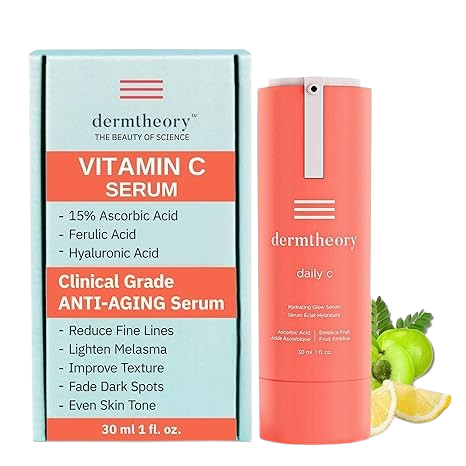
- Retinol + Shea Butter:
- Retinol, a derivative of vitamin A, is renowned for its ability to accelerate cell turnover, improve skin texture, and reduce the appearance of wrinkles and acne. However, it can be irritating and drying for some people. Shea butter, a rich natural moisturizer, counters these effects by soothing the skin and replenishing its moisture barrier, ensuring that retinol can work effectively without causing undue irritation.
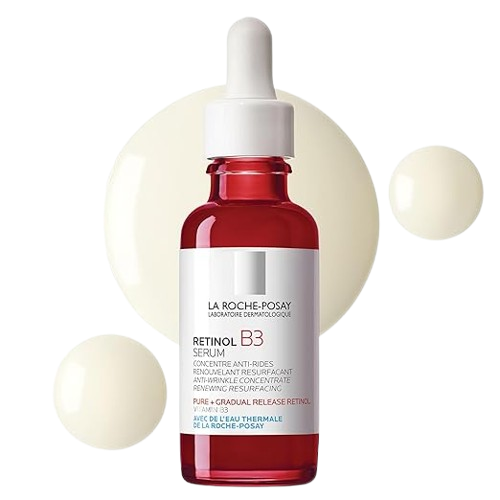
This synergistic approach ensures that you reap the benefits of nature without compromising on scientific rigor.
Tips for Choosing the Right Natural Skincare Products
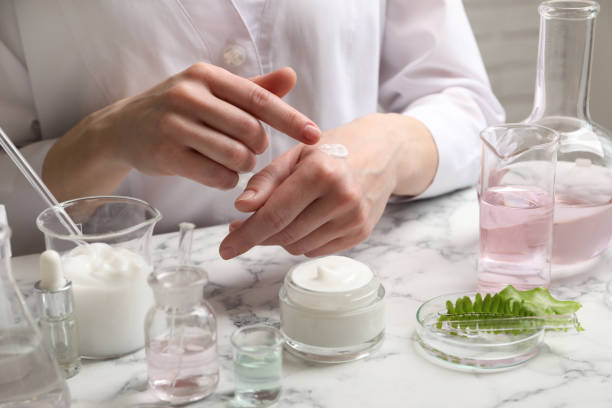
- Read Labels Carefully: Look for recognizable natural ingredients and avoid products with long lists of synthetic chemicals.
- Prioritize Evidence-Based Ingredients: Focus on ingredients backed by scientific studies.
- Consider Your Skin Type: Not all natural ingredients suit every skin type. For example, oily skin may benefit from tea tree oil, while dry skin thrives with shea butter.
- Patch-Test First: Always test a small amount on your forearm before applying it to your face.
- Check Certifications: Look for certifications like USDA Organic or Ecocert to ensure product authenticity.
Conclusion: A Balanced Approach to Natural Skincare
Natural skincare offers a wealth of benefits, from gentle hydration to powerful antioxidant protection. However, not all natural ingredients are equally effective, and some may not suit your skin type. By relying on science-backed information and combining the best of nature with modern advancements, you can achieve healthy, radiant skin.
At aayushii.com, we’re committed to helping you navigate the world of skincare with clarity and confidence. Explore our articles for more insights into holistic health and beauty, and empower yourself to make informed decisions for your skin.
FAQ: The Truth About Natural Skincare Ingredients: What Really Works?
Q1: Are natural skincare ingredients always better for my skin?
A1: Not necessarily. While natural ingredients can be gentle and beneficial, effectiveness depends on the specific ingredient and your skin type. Some synthetic ingredients may be more effective for certain skin concerns.
Q2: Can natural ingredients cause irritation?
A2: Yes, even natural ingredients like essential oils or plant extracts can cause irritation, especially if you have sensitive skin. Always patch-test new products.
Q3: Is hyaluronic acid natural?
A3: While hyaluronic acid can be derived from natural sources, it is often synthesized in labs for skincare use. It remains highly effective for hydration regardless of its origin.
Q4: What natural ingredients are best for anti-aging?
A4: Ingredients like Vitamin C, retinol (derived from Vitamin A), rosehip oil, and peptides (often plant-based) are great for reducing fine lines and boosting collagen.
Q5: Are natural skincare products free from chemicals?
A5: Not necessarily. Many natural products still contain naturally derived chemicals, which can be just as effective (or safer) as synthetic ones. Always check the full ingredient list.
Q6: How do I know which natural skincare ingredients work for me?
A6: It’s important to understand your skin type and concerns. For example, aloe vera is great for soothing, while tea tree oil works for acne. Patch-test and consult a dermatologist if needed.
Q7: Can I expect instant results with natural ingredients?
A7: Natural skincare tends to work more gradually than synthetic options, so patience is key. Consistent use is often required for noticeable results.
Q8: Should I avoid synthetic skincare ingredients completely?
A8: Not necessarily. Many synthetic ingredients are well-researched, safe, and effective. The key is finding a balanced skincare routine that works for your skin.

